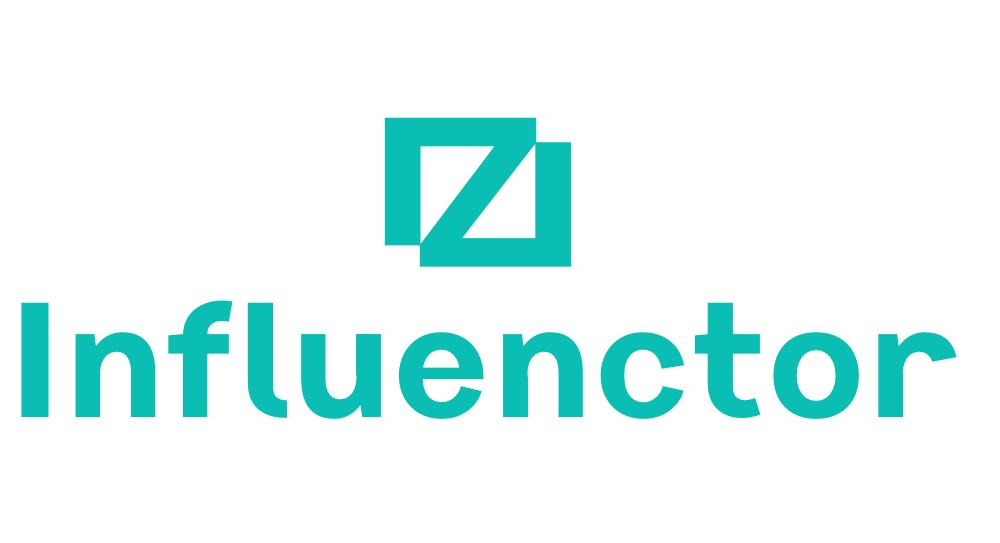How to Write Email
How to Write an Email to Your Professor About Research
Fascinated by the prospect of conducting research with a professor? Learn how to craft a compelling email that gets their attention.

In contacting a professor regarding research, it’s crucial that our correspondence is concise, courteous, and captivating. Yet, what is the best way to achieve this equilibrium? How can we express our enthusiasm for the topic without seeming too zealous?
Join us as we explore the key elements of crafting a well-written email to a professor about research, from the initial greeting to the request for a meeting.
Key Takeaways
- Thoroughly research the professor's background, including their published work, current projects, and awards.
- Craft a clear and concise subject line that indicates the content and importance of the email.
- Clearly communicate the specific research topic of interest and highlight relevant experience and qualifications.
- Request a meeting or discussion with a polite and professional tone, expressing eagerness for potential research collaboration and gratitude for the professor's time and expertise.
Understanding the Purpose
We're reaching out to professors to discuss their research because we're keen to understand their work and explore potential opportunities to contribute.
As undergraduates, we're interested in becoming involved in research and are eager to discuss the possibility of getting involved in your research projects. We understand the value of hands-on experience and are enthusiastic about the prospect of contributing to meaningful research in our academic field.
In our emails to faculty members, we aim to clearly state our interest in their research and personalize each email to demonstrate our genuine interest. We're mindful of keeping the emails professional, short, and to the point, while also offering available times to meet and discuss our interests in greater detail.
When reaching out, we make sure to mention our names, academic years, and majors in the introduction to provide a brief background about ourselves.
Researching the Professor

As we prepare to reach out to professors about their research, our first step is to thoroughly research each faculty member to effectively personalize our communication and demonstrate our genuine interest.
When researching the professor, it's crucial to delve into their published work and current projects, allowing us to gain a comprehensive understanding of their research focus and achievements. Additionally, exploring their educational background, professional experience, and any awards or accolades they've received can provide valuable insight into their expertise and interests.
By doing so, we can tailor our email to reflect a keen understanding of the professor's work and convey a genuine enthusiasm for the opportunity to discuss their research. This demonstrates our dedication and respect for the faculty's contributions to their field, fostering a sense of mutual admiration and respect in our communication.
Ultimately, this personalized approach not only showcases our sincere interest in the faculty's research but also sets the stage for a meaningful and productive discussion.
Crafting a Clear Subject Line
Crafting a clear and concise subject line is essential when emailing a professor about research, as it sets the tone for the communication and effectively communicates the purpose of the email. A well-crafted subject line immediately conveys the intention behind the email, increasing the likelihood of a prompt and relevant response.
When composing the subject line, it's crucial to be specific and to the point, using language that indicates the content and importance of the email. Including keywords related to the research opportunity or meeting request can also grab the professor's attention. For instance, if you're interested in discussing a specific research project, a subject line such as 'Meeting to Discuss [Research Project Title]' would clearly communicate the purpose of your email.
Avoid vague or general subject lines that could be misconstrued or overlooked. Remember, the subject line is the first thing the professor will see, so it needs to make a strong impression and compel them to open the email.
Crafting a clear subject line demonstrates professionalism and consideration for the professor's time, ultimately contributing to a more effective and respectful form of communication.
Greeting and Introduction

When reaching out to a professor about research, it's crucial to start with a proper salutation and a clear introduction. This sets the tone for a professional and engaging conversation.
We should also express our interest in a specific research topic to demonstrate our preparedness and focus.
Proper Email Salutation
We recently discovered some valuable guidelines for crafting a proper email salutation when reaching out to a professor about research.
When addressing a professor, it's crucial to use a clear and concise subject line that indicates the purpose of the email.
Additionally, it's important to address the recipient with a proper title, such as 'Dear Dr. [Last Name]', to show respect and professionalism. Vague greetings like 'To whom it may concern' should be avoided as they can come across as impersonal.
When introducing yourself, stating your year in school and your major or anticipated major can help to establish your academic background.
Expressing your genuine interest in research and mentioning the specific research topic you're interested in can demonstrate your enthusiasm and commitment to the subject.
Clear Research Topic
Our email should clearly communicate the specific research topic we're interested in, demonstrating our enthusiasm and commitment to the subject.
When writing an email to a faculty member expressing our interest in research, it's crucial to articulate our chosen research topic concisely and effectively. By clearly stating the research topic, we showcase our passion and dedication to the subject matter.
Additionally, we should discuss our relevant experience in the field, highlighting our qualifications and expertise. This will assure the professor of our capability and preparedness to engage in meaningful research discussions.
A clear and focused research topic in our email will convey professionalism and a genuine interest in the subject, laying the foundation for a potential research collaboration.
Concise Introduction
Dear Dr. [Last Name],
I am a second-year student majoring in Neuroscience, and I'm eager to discuss my interest in conducting research on the neurobiological mechanisms underlying memory formation. I've a deep passion for understanding the intricate processes that govern memory encoding and retrieval, and I'm enthusiastic about delving into this area of research under your guidance.
I'm driven by a desire to contribute to the advancement of our understanding of memory formation, which I believe is crucial for developing treatments for conditions like Alzheimer's disease.
I'm eager to learn from your expertise and contribute meaningfully to ongoing research in this field.
I am keen on scheduling a meeting to discuss potential opportunities for involvement in research projects. Thank you for considering my request.
Sincerely,
[Your Name]
Expressing Interest in Research

We're excited to share how to effectively express interest in research.
It's crucial to demonstrate genuine curiosity about the professor's work.
Research Interest Expression
Express your genuine interest in the professor's research by clearly and succinctly stating your enthusiasm and motivation to contribute to their work.
We're eager to join your research group and immerse ourselves in the exciting projects. We're passionate about delving into the complexities of [SUBJECT AREA] and are driven to make meaningful contributions.
We believe that being involved in research under your mentorship would provide an invaluable learning experience, shaping our academic and professional growth. The opportunity to meet with you and discuss your ongoing work would be immensely valuable.
We're eager to engage with the faculty member and gain insights into the research process. The chance to be involved in research alongside your team is something we're genuinely enthusiastic about.
Demonstrating Curiosity
Immersing ourselves in your research group would provide invaluable insights into the ongoing work and contribute significantly to our academic and professional growth.
As a [insert major or academic background], I'm deeply interested in research, particularly in [insert subject area]. Being involved in research in this field is crucial for my career goals, as it enhances my understanding and practical skills.
Your work, especially [mention specific research or publication], has caught our attention, and we're keen to learn more about the methodologies and findings.
I've thoroughly reviewed your profile and am interested in the work being done in your research group. I'd greatly appreciate the opportunity to discuss this further and would be happy to schedule a meeting or attend your office hours at your convenience.
Demonstrating Preparation

Having thoroughly researched the professor's work and identified specific areas of interest, we're prepared to demonstrate our alignment with their research through relevant experiences and coursework.
- We've gained valuable research experience through our involvement in several projects, which have equipped us with the skills necessary to contribute meaningfully to your research.
- This experience has deepened our understanding of the research process and the intricacies of conducting rigorous academic inquiries, instilling in us a deep appreciation for the complexities of your field.
After having reviewed your faculty page and read your paper on [paper title], we're genuinely interested in your research on [specific area of interest]. This aligns with the coursework we've completed, focusing on [relevant coursework]. We're confident that our background has provided us with a solid foundation to meaningfully engage in and contribute to your ongoing research.
We have also attached my resume, which outlines our academic and research experiences. We'd be honored to discuss how we can further contribute to your research and are available at your earliest convenience to meet and expand on our interest in your work.
Highlighting Relevant Experience
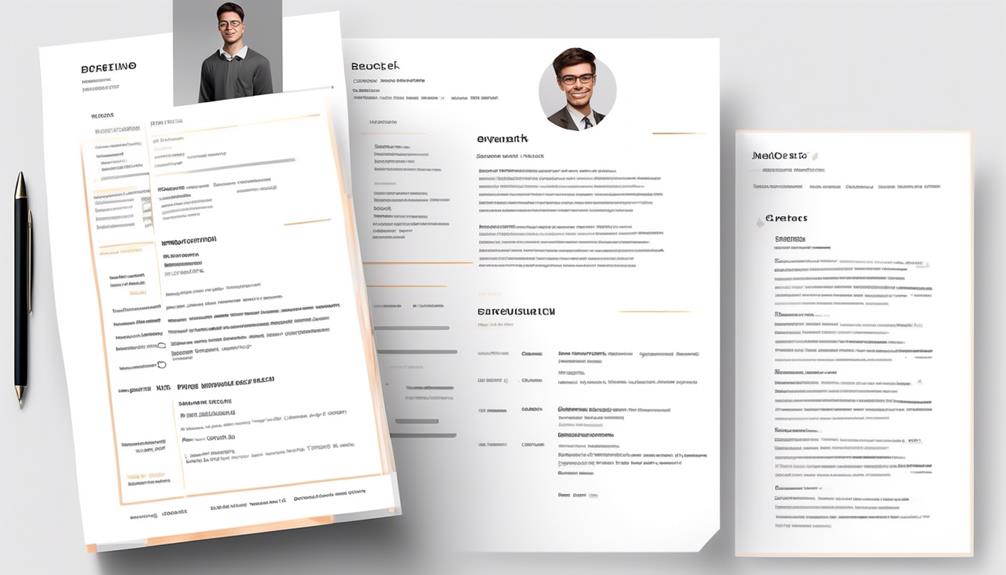
After immersing ourselves in relevant coursework and research experiences, we're eager to highlight how these have equipped us to contribute meaningfully to your ongoing research.
In our previous research project, we delved into the intricacies of [research topic], honing our skills in data analysis and experimental design. Additionally, our involvement in [Student Research] provided valuable insight into the practical application of theoretical concepts, further fueling our interest in research.
Through these experiences, we've developed a strong foundation in literature review and academic writing, culminating in a publication in [relevant journal or conference proceedings].
Our coursework in [specific relevant courses] has equipped us with a solid understanding of [specific techniques or methodologies], which we believe will be invaluable in contributing to your research endeavors.
We're eager to discuss how our background can add value to your team and are prepared to provide further details about our research experience and skill set.
Please find our contact information below and don't hesitate to reach out for any additional information.
Requesting a Meeting or Discussion

We need to address the best approach for inquiring about meeting availability and scheduling a discussion with the professor.
It's important to convey our interest and qualifications while also being considerate of the professor's time.
We should also discuss how to effectively request a brief meeting to discuss our research interests and potential contributions to the professor's work.
Meeting Availability Inquiry
To discuss potential research opportunities, I'm writing to request a meeting at your earliest convenience.
- We understand the value of your time and expertise, and we're available to meet during your office hours.
- We believe that a face-to-face discussion would be invaluable in gaining insight into your current research projects and potential areas for collaboration.
- We'd appreciate an opportunity to discuss how our research interests align and explore possibilities for working together.
We look forward to hearing from you regarding your availability for a meeting. Thank you for considering our request, and we're eager to engage in a meaningful conversation about potential research collaboration.
Scheduling a Discussion
With a keen interest in your research and a desire to explore potential collaboration opportunities, we are eager to schedule a discussion at your earliest convenience. We believe that a face-to-face meeting would be beneficial to discuss potential research opportunities. Please let us know a convenient time next week to discuss this further. Additionally, if there are any specific documents or information you would like us to bring to the meeting, please inform us in advance. We are flexible and can work around your schedule. If you prefer, we could also schedule a phone discussion at your convenience. Please find our contact number below.
| Monday | Wednesday | Friday |
|---|---|---|
| 10:00 am – 12:00 pm | 2:00 pm – 4:00 pm | 9:00 am – 11:00 am |
We are looking forward to meeting with you to discuss this exciting opportunity further. Thank you for considering our request.
Seeking a Brief Meeting
Request a brief meeting with Dr. [Last Name] to discuss potential research collaboration opportunities. We're eager to meet with Dr. [Last Name] and look forward to talking about the exciting research projects being undertaken.
We appreciate the opportunity to be involved in research with Dr. [Last Name] and are keen to discuss how we can contribute to ongoing work. It's essential for us to become involved in research and gain insights from Dr. [Last Name]'s expertise.
We're excited about the prospect of meeting and discussing potential research collaborations, and we believe that a brief meeting would be invaluable for both parties. Thank you for considering our request, and we're hopeful for the chance to meet with you.
Polite and Professional Tone

Maintaining a formal and respectful tone throughout the email is essential when communicating with a professor about research opportunities. It is crucial to convey a polite and professional tone to show respect for the professor's time and expertise. When writing an email to a professor, it's important to use language that is contextually relevant and appropriate for the academic setting. This includes addressing the professor with the appropriate title, such as 'Dear Dr. [Last Name]', and avoiding the use of slang, abbreviations, or emoticons in the message. Additionally, being concise and to the point while maintaining a polite demeanor is key. Proofreading the email for spelling and grammar errors before sending is also essential to ensure a high level of professionalism. Below is a table highlighting the do's and don'ts of maintaining a polite and professional tone when writing an email to a professor about research opportunities:
| Do's | Don'ts |
|---|---|
| Use formal language and respectful | Use slang, abbreviations, or emoticons |
| Address the professor appropriately | Use informal language or casual greetings |
| Be concise and to the point | Ramble or use unnecessary fluff |
| Proofread for errors before sending | Send without checking for mistakes |
| Express gratitude for their time | Forget to show appreciation for their time |
Closing and Sign-off
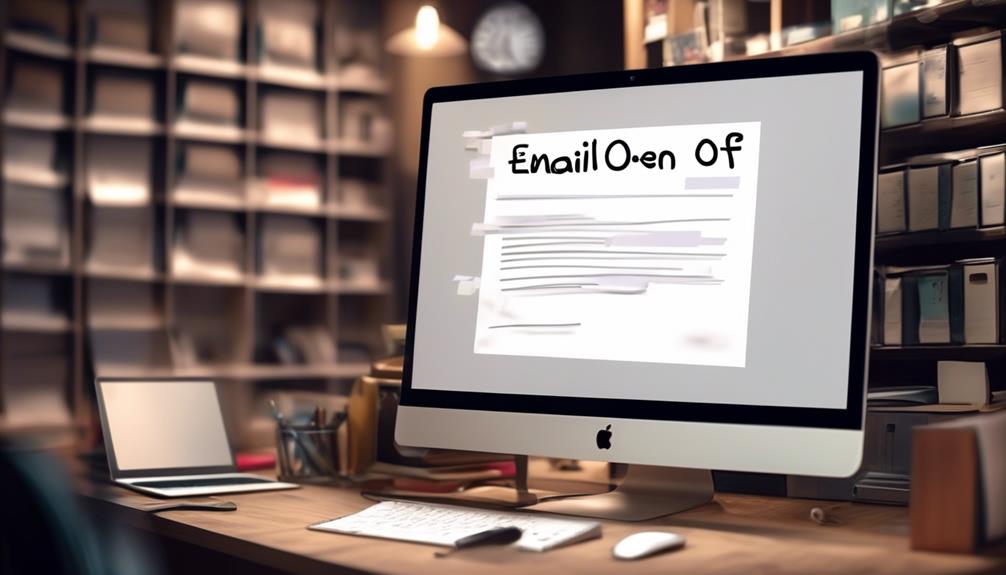
We appreciate the importance of maintaining a professional tone in our communication with professors about research opportunities, and a crucial aspect of this is the closing and sign-off in our emails.
When crafting the closing and sign-off of our emails to professors about research opportunities, it's essential to remember the significance of expressing gratitude and respect. This is the last impression we leave, and it should reflect our appreciation for the professor's time and consideration.
Here are some tips for a contextually relevant and emotionally resonant closing and sign-off:
- Express gratitude: Thank the professor for considering your email and for their time. This shows respect and acknowledges the professor's expertise and busy schedule.
- Convey enthusiasm: Use a closing statement that reflects your interest in the topic and your eagerness to potentially work together. Demonstrating passion and interest in the professor's research can make your email more compelling and memorable.
In closing, we understand the importance of ending our emails to professors on a positive and respectful note. By following these guidelines, we can effectively convey our appreciation and interest while maintaining a professional and courteous tone.
Proofreading and Polishing
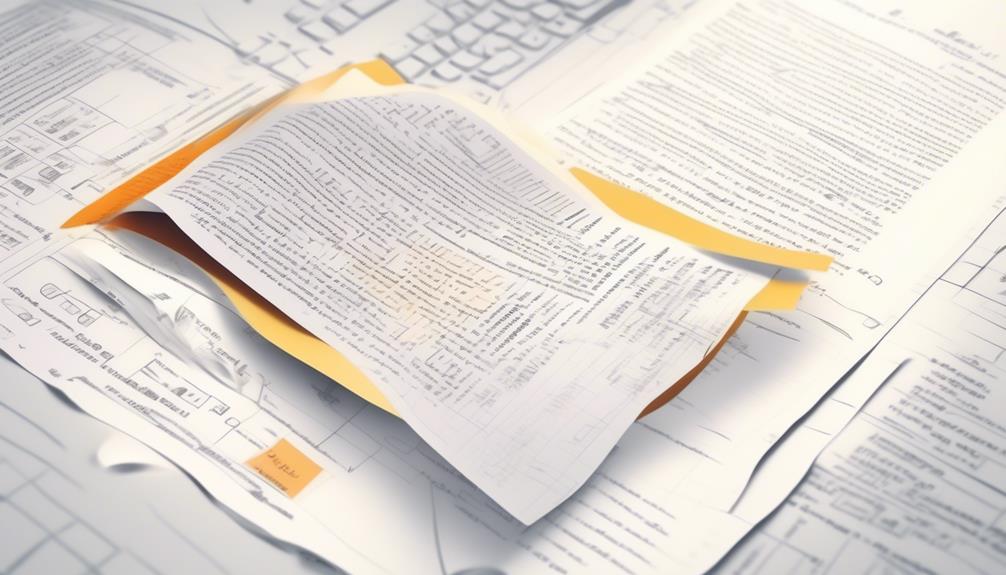
To ensure the professionalism and impact of our communication with professors, we meticulously review our emails for spelling and grammar errors, ensuring clarity and precision. As junior students majoring in various fields, it is crucial to exhibit proficiency in our written correspondence, especially when reaching out to esteemed faculty members for potential opportunities in their research group or lab. Proofreading and polishing our emails before sending them is an essential step in conveying our dedication and respect for the recipient's time and expertise.
| Proofreading Tips | Example |
|---|---|
| Check for spelling and grammar errors | "I am interested in participating in independent research with your lab." |
| Ensure the email is well-structured and organized | Use paragraphs and bullet points to present information clearly. |
| Double-check that the content is clear and concise | "I have completed coursework in molecular biology and am eager to apply my skills in a research setting." |
| Consider asking a peer or mentor for feedback | "Could you please review this email and provide any suggestions for improvement?" |
Following Up

After sending an initial email expressing interest in research opportunities, it's important to send a polite and concise follow-up email if a reply isn't received after a couple of weeks. When following up, it's crucial to express gratitude for the professor's consideration and reiterate your genuine interest in discussing research opportunities. It's important to be considerate of the professor's time and workload, as they're often busy with various commitments.
Here's how to evoke an emotional response in the audience:
- Subtle Persistence: Waiting for a reply can be nerve-wracking, but maintaining a polite and patient demeanor can convey your commitment and respect for the professor's time. This demonstrates perseverance and dedication, qualities that resonate well with mentors.
- Gracious Acknowledgment: Expressing gratitude for the professor's consideration, even in the follow-up email, reflects humility and demonstrates a deep respect for the professor's expertise and time. This will likely resonate with the professor and could possibly increase the likelihood of a favorable response.
What Should I Include in an Email to a Professor About Research?
When emailing a professor for research, be concise and clear about your purpose. Include your introduction, the reason for reaching out, any relevant experience or qualifications, and a specific request. Respect their time and keep your email professional and courteous. Remember to proofread before hitting send.
Frequently Asked Questions
How Do You Email a Professor to Ask About Research?
We email a professor to inquire about research by crafting a polite and concise message.
We introduce ourselves, express interest in their research, and request an opportunity to discuss potential collaboration.
It's essential to demonstrate knowledge of the professor's work and to articulate our own research interests.
We aim to convey professionalism, enthusiasm, and a genuine desire to contribute to their research endeavors.
How Do You Write an Email Asking for Research Collaboration?
We usually start by expressing our interest in the professor's research and highlighting our own expertise.
Then, we propose a potential collaboration and outline the benefits for both parties.
We also suggest a meeting to discuss the details further.
This approach demonstrates our enthusiasm, knowledge, and willingness to contribute.
It's essential to be clear, concise, and respectful in our communication, emphasizing the mutual value of the collaboration.
How Do You Write a Professional Email to a Professor?
We write professional emails to professors by following a specific structure.
- First, we should open with a respectful salutation.
- Next, we need to clearly state our purpose for writing the email.
- After that, it's important to provide any relevant context or information that the professor needs to know.
- Finally, we should express gratitude for the professor's time and consideration.
In addition to the structure, there are other important factors to consider.
- We should strive to be concise in our emails, getting straight to the point without unnecessary details.
- It's also crucial to use formal language and avoid slang or casual expressions.
- Proofreading before sending the email is essential to catch any spelling or grammar errors.
- Furthermore, we should ensure that our email is professional in both formatting and tone.
Lastly, it's crucial to remember that professors are busy individuals.
- As a result, being respectful of their time is of utmost importance.
How to Do Research Under a Professor?
Doing research under a professor is an incredible opportunity to gain hands-on experience and expand our knowledge. We learn by actively engaging in real-world projects, receiving mentorship, and contributing to the advancement of knowledge. It's a chance to immerse ourselves in a field we're passionate about and make a meaningful impact.
The experience is invaluable and sets the stage for future success in academia and beyond.
Conclusion
After crafting a well-written email to a professor about research, it's like planting a seed in fertile ground. The care and effort put into each word and detail will determine the growth and success of the communication.
Just as a seed needs nurturing to bloom, a carefully constructed email can lead to fruitful opportunities in the world of academia.
So, take the time to cultivate your communication skills and watch your efforts yield great results.
Natali – Editor in Chief (Strategy and Mastery, AI Expert) Natali, our Editor in Chief, is the driving force behind our content’s strategic direction. With a keen eye for detail and a deep understanding of market trends, Natali ensures that our content is top-notch and strategically aligned with our client’s goals. Her expertise in AI helps to seamlessly integrate advanced technology into our marketing strategies, pushing the boundaries of conventional marketing.
How to Write Email
Vacation Email Etiquette: How to Write with Politeness
Struggling to craft the perfect vacation email? You'll want to keep reading for essential tips and strategies to nail it.

So, we’re all familiar with the routine of composing a professional out-of-office email, correct? Actually, perhaps not.
While the idea of taking time off sounds like a breeze, the art of communicating that to your colleagues can be a bit more complex.
But fear not, because we've got some key tips and strategies to help you navigate the ins and outs of drafting the perfect out-of-office message.
Whether it's setting clear expectations or ensuring your absence won't disrupt the team's workflow, there's a lot to consider when it comes to mastering the art of the vacation email.
Key Takeaways
- Include specific details such as dates of absence, expected return date, and urgent instructions in the vacation email.
- Clearly communicate dates of absence in the out-of-office message and provide alternative contacts for urgent matters.
- Maintain a professional tone in all communication and convey professionalism and reliability in the out-of-office message.
- Understand company vacation policy and use appropriate request email templates, while also considering the impact on workload and showing consideration for the team when requesting time off.
Essential Components of a Vacation Email
When crafting a vacation email, it's essential to include specific details such as the dates of your absence, your expected return date, and any necessary instructions for urgent matters. A concise subject line should indicate that it's an informal vacation request. In the body of the email, maintain a professional tone to ensure a smooth and clear communication process.
In the first paragraph, clearly state the purpose of the email – to request vacation time. Provide the dates of your absence, including the start and end dates, and your expected return date. This information helps the recipient understand the duration of your absence and plan accordingly.
Additionally, if there are any specific instructions for urgent matters during your absence, make sure to include them in the email to ensure that any critical issues can be addressed in your absence.
Crafting a Professional Out-of-Office Message
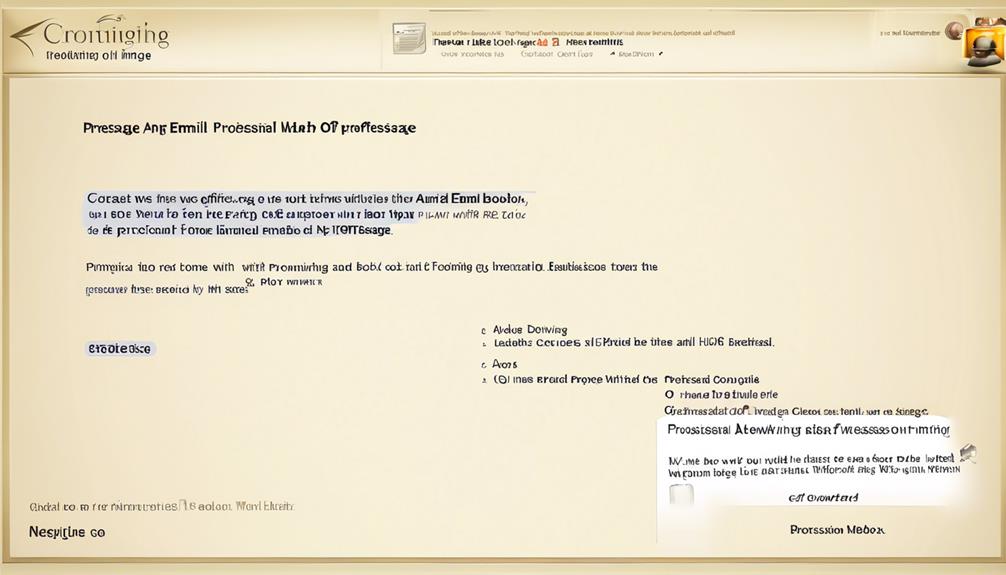
After requesting vacation time, it's important to also craft a professional out-of-office message that clearly communicates the dates of absence and provides alternative contacts for urgent matters.
When writing the out-of-office message, it's essential to ensure that it conveys a sense of professionalism and reliability. Clearly state the dates of your absence and provide an alternative contact in case of urgent matters.
It's good practice to express gratitude for understanding and cooperation during your leave. Additionally, offer to follow up on any pending matters upon your return to reassure colleagues and clients that their issues will be addressed promptly.
While crafting the message, it's important to adhere to company communication standards and policies to maintain consistency in tone and content. Avoid sharing unnecessary personal details in the out-of-office message to maintain a professional tone.
Writing a good out-of-office message is crucial as it reflects your commitment to professionalism and ensures that important matters are attended to in your absence.
Setting Expectations With Colleagues and Clients
To ensure smooth communication during my absence, we will clearly communicate our availability and response times for emails and calls to colleagues and clients. It's crucial to set realistic expectations and maintain a professional tone in all communication. Here is a simple table to help you craft a professional email and set expectations with your colleagues and clients:
| Information to Include | Example |
|---|---|
| Availability during vacation | I will be out of the office from [start date] to [end date]. |
| Response times for emails and calls | I will have limited access to emails and will respond within 24-48 hours. |
| Delegated responsibilities | Please contact [colleague's name] for any urgent matters. |
| Contact information | For immediate assistance, please reach out to [colleague's name] at [contact information]. |
Effective Examples of Out-of-Office Messages
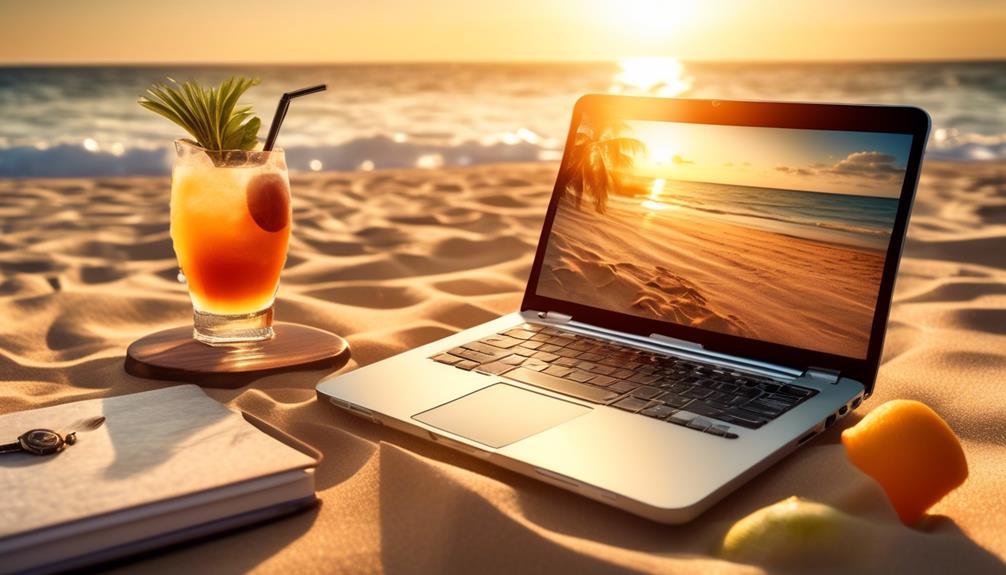
Crafting effective out-of-office messages is an essential aspect of maintaining clear communication while on vacation. When writing these messages, it's important to be polite and professional while providing the necessary information. Here are three effective examples of out-of-office messages that you can use as a template for your own:
- 'I am currently out of the office and will return on [date]. For urgent matters, please contact [colleague's name] at [colleague's email].'
- 'Thank you for your email. I'm out of the office until [date] and will have limited access to email. For immediate assistance, please contact [alternative contact].'
- 'I am on vacation until [date] and won't be checking emails. For urgent matters, please reach out to [colleague's name] at [colleague's email].'
These examples demonstrate a good rule of thumb for crafting effective out-of-office messages. They provide clear information about the duration of the absence, alternative contacts for urgent matters, and set professional expectations for communication while away.
When using these examples, be sure to customize them to fit your specific situation and maintain a polite and professional tone.
Mastering the Art of the Vacation Email
As we focus on mastering the art of the vacation email, it's essential to seamlessly shift from crafting effective out-of-office messages to the nuances of requesting and composing a professional vacation email.
When it comes to requesting time off, knowing how to write a Vacation Leave Request or Time Off Email is crucial. We need to make sure we understand the company vacation policy and use the appropriate request email template. It's important to know the steps for writing a vacation request email, including a concise subject line, specifying the reason for the request, exact dates, preparation steps, and a thank-you note. Additionally, we should ask ourselves if we really need to take those days off, consider the impact on our workload, and reflect consideration for our team.
Understanding different types of vacation request emails, such as reminders, emergency time off, annual vacations, one day off, or canceling a vacation request, is also essential. Before sending a vacation request email, we need to ensure we include emergency contact information if necessary and assure coverage during our absence.
Mastering the art of the vacation email requires attention to detail and adherence to professional etiquette.
Frequently Asked Questions
What Should I Write in a Vacation Email?
We should include the dates of our absence, the reason for our vacation, and who to contact in our absence.
It's important to keep the email brief and to the point, while also expressing gratitude for understanding.
We can reassure the recipient that we'll respond to any urgent matters upon our return.
It's also good to set up an out-of-office auto-reply with the same information.
How Do You Write an Email for Time Off?
We write an email for time off by crafting a clear subject line, stating the purpose, providing specific dates, and outlining a plan for managing responsibilities during absence.
We ensure to include emergency contact information and express willingness to address any concerns. Politeness, professionalism, and appreciation are crucial throughout.
Understanding company policies and considering workload impact on colleagues help in crafting a thoughtful request reflecting consideration for the team.
How Do You Email a Planned Vacation Leave?
When we email a planned vacation leave, it's important to be clear and concise about the dates and reason for our absence. We should also mention who'll be covering for us in our absence and provide any necessary contact information.
It's crucial to ensure that our email is professional and respectful of our colleagues' time and responsibilities. Lastly, we should make sure to set up an out-of-office auto-reply for any incoming emails during our vacation.
How Do I Professionally Say I Am on Vacation?
We inform our colleagues of our vacation by clearly stating the purpose and dates.
We assure them that work will be handled and maintain a polite and professional tone.
We offer to address any concerns and end with a thank you note and openness to discussions.
This approach ensures a professional and considerate communication of our absence.
Conclusion
We understand that taking vacation time can sometimes feel like a burden on our colleagues. However, by following the proper procedures and communicating effectively, we can ensure a smooth transition and minimal disruption.
Our team's support for each other's well-deserved time off strengthens our bond and ultimately leads to a more productive and positive work environment.
Erik – Email, SEO, AI Expert Writer Erik is the strategist, the thinker, and the visionary. His role at Influenctor is pivotal in integrating SEO with AI-driven content strategies. With an extensive background in email marketing and a profound understanding of search engine algorithms, Erik develops innovative strategies that elevate our client’s online presence. His work ensures that our content is seen, felt, and remembered.
How to Write Email
How to Write a Polite RSVP Email
Discover the essential elements for crafting a compelling RSVP email that guarantees a timely and clear response.
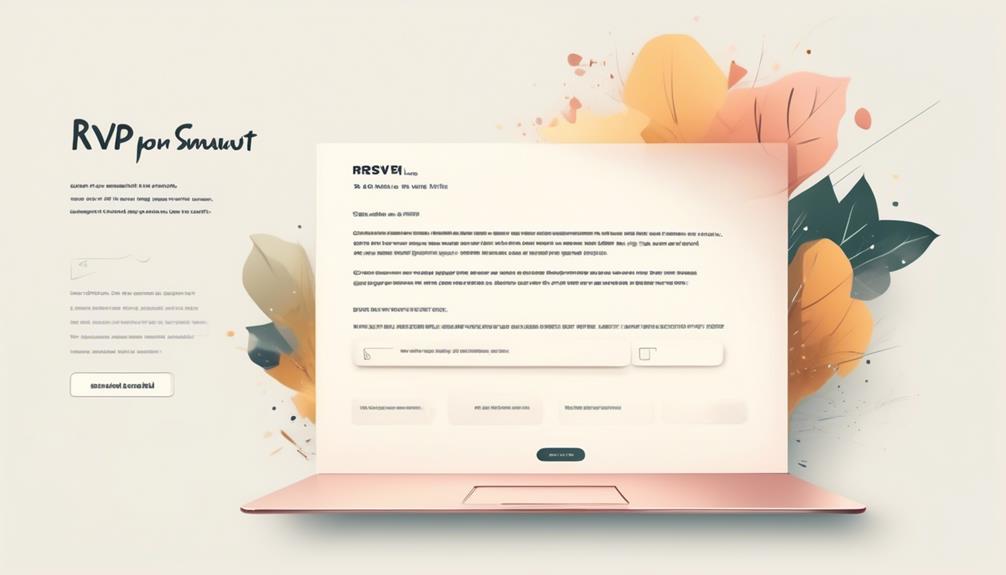
Crafting an RSVP email is akin to creating the ideal invite – each phrase and element reflects the event’s tone and professionalism. We’ve all gotten RSVP emails that puzzle us, leaving us unsure of how to reply or even what we’re replying to.
But fear not, because we've got the key to crafting an RSVP email that will guarantee a timely and clear response. So, whether you're planning a corporate event or a casual gathering, mastering the art of crafting a compelling RSVP email is crucial for ensuring a successful and organized event.
Key Takeaways
- The subject line of an RSVP email should be concise and informative.
- Respond promptly to RSVP emails and acknowledge the invitation with gratitude.
- Craft a professional RSVP email using polite language, proper grammar, and a respectful tone.
- Clearly explain the importance of RSVP, encourage confirmation and provide necessary details in the email.
Understanding the RSVP Email
Understanding the RSVP email is crucial for properly responding to event invitations and ensuring clear communication with the host. When crafting an RSVP email, it's essential to pay attention to the RSVP email subject to convey your response clearly. The subject line should be concise and informative, such as 'RSVP Confirmation for [Event Name]' or 'Reply to RSVP for [Event Date].' This helps the host easily identify and categorize responses.
In addition, it's important to respond to RSVP emails promptly. This not only shows respect for the host's invitation but also helps with event planning. When sending an RSVP via email, make sure to acknowledge the invitation, express gratitude, and provide a clear RSVP confirmation. Clearly state whether you'll attend or not, as well as any additional information requested, such as dietary preferences or the number of guests attending.
Crafting a professional RSVP email involves using polite language, proper grammar, and a respectful tone. The email should be concise, yet thorough, ensuring that all necessary details are included. Moreover, be mindful of any specific instructions provided in the invitation and address them in your response.
Crafting a Clear RSVP Request
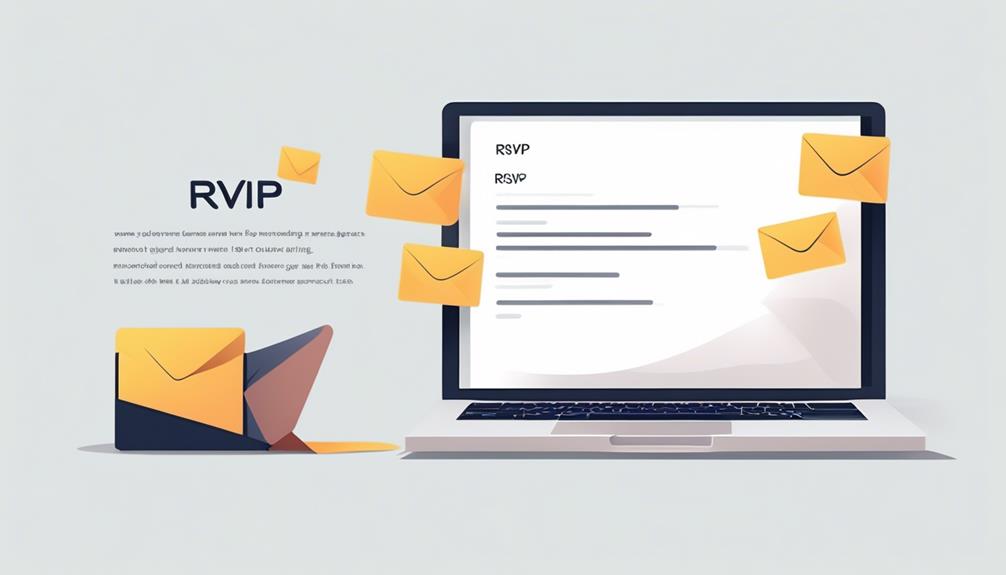
Upon receiving an event invitation, it's essential to clearly articulate the RSVP request, emphasizing the significance of timely responses and providing guidance on crafting a professional and courteous RSVP email.
When crafting a clear RSVP request, it's crucial to clearly explain what RSVP means and why it's important. Encourage recipients to let you know if they can attend and to confirm the exact number of attendees. Provide a standard RSVP format or template to make it easier for invitees to respond.
It's also important to offer RSVP samples or examples to guide recipients on how to write an RSVP email professionally. Emphasize the importance of prompt responses and encourage honesty and openness in their replies.
When making the RSVP request, be clear and direct in asking recipients to confirm their attendance. Use language that's polite and courteous, but also conveys the importance of their response.
Polite RSVP Email Closure
We appreciate the invitation and look forward to the event. It's important to conclude your RSVP email with a polite and friendly closure to leave a positive impression. Expressing gratitude for the invitation and conveying anticipation for the event is essential. Use phrases like 'Looking forward to the event,' 'Thank you for the invitation,' or 'Warm regards' to conclude your email respectfully. It's crucial to ensure that your closing aligns with the tone and formality of the event or the relationship with the host. Signing off with your name or a personalized closing, such as 'Best wishes' or 'Sincerely,' maintains professionalism. When replying, if you cannot attend, please let the host know. Here is an example of a polite RSVP email closure:
| Looking forward to the event | Thank you for the invitation | Warm regards |
|---|---|---|
| Excitement and anticipation | Gratitude | Friendliness |
Closing your RSVP email with warmth and appreciation leaves a lasting positive impression.
Utilizing RSVP Email Templates
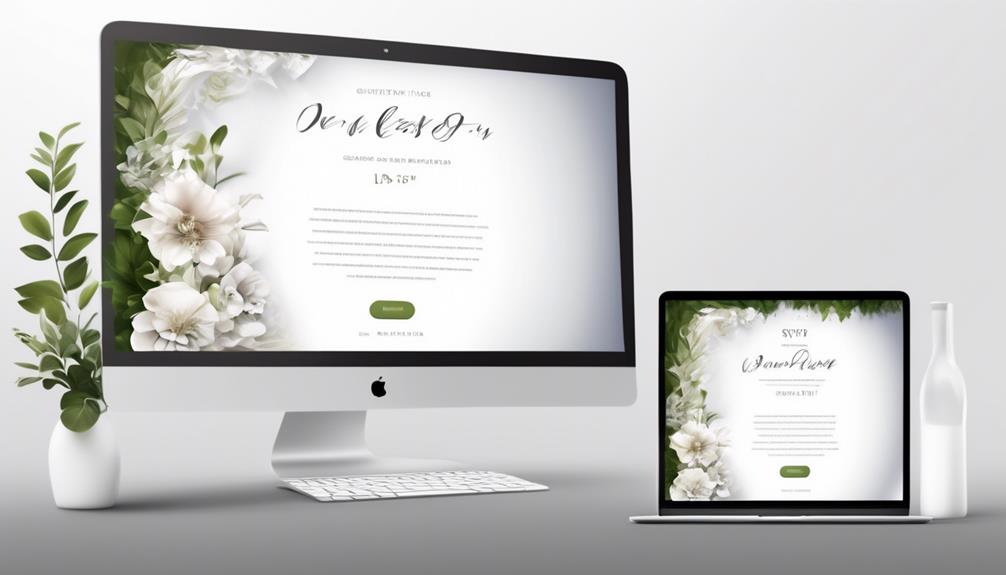
Utilizing email templates can greatly streamline the process of drafting RSVP responses, making the task more efficient and ensuring a consistent and professional tone. When writing invitation emails, using RSVP email templates can save time and effort, especially when responding to multiple invitations. These templates often include standard phrases such as 'Répondez s'il vous plaît,' 'We look forward to seeing you,' and 'Please kindly respond by [event date].' They can also provide guidance on how to address various RSVP responses, such as accepting, declining, or expressing gratitude for the invitation.
In addition to social events, RSVP emails are also crucial in professional settings, such as job applications, where prompt and well-crafted responses are essential. Utilizing templates can help maintain a polished and organized approach, which is particularly important for seating arrangements, dietary requirements, and other logistical considerations.
Mastering RSVP Response Etiquette
Mastering RSVP response etiquette involves understanding the significance of timely and respectful RSVP responses and adhering to established social and professional norms. When crafting an RSVP reply, it's crucial to strike the right tone, conveying your response clearly and professionally.
Whether you're unable to attend or excited to say yes, it's essential to communicate your decision promptly, allowing the host to make necessary arrangements. Politely declining an invitation requires tact and consideration, ensuring that the host understands your decision while expressing gratitude for the invitation.
In professional settings, such as event planning, mastering RSVP response etiquette is paramount for maintaining professional relationships and ensuring smooth coordination. Clear and concise language in RSVP messages is key, as it demonstrates respect for the host's time and effort in organizing the event.
Frequently Asked Questions
How Do You RSVP in an Email Example?
Sure, we can definitely help with that.
When responding to an email invitation, it's important to be polite and timely.
A simple 'Thank you for the invitation. We'll be attending the event' is a good example of how to RSVP in an email. It's concise and clearly conveys your response.
Remember to include all relevant details, such as the date and time of the event, and any plus-ones if applicable.
What Do You Write in a RSVP Response?
We always strive to provide a prompt and detailed response when sending an RSVP.
It's essential to express our gratitude for the invitation, state our intention to attend or regretfully decline, and include any necessary details requested.
Clear communication and a respectful tone are key in ensuring the event planner has the information needed for a successful gathering.
How Do You Confirm Rsvp?
We confirm RSVPs by sending a polite and prompt response to the invitation. It's important to acknowledge the invitation and clearly state our intention to attend or not.
A well-crafted email with a clear subject line and respectful tone can effectively confirm our RSVP. It's also essential to provide the requested response option, whether it's a 'Yes,' 'No,' or 'Maybe,' to ensure proper event planning and organization.
How Do You Politely Ask for Rsvp?
We kindly ask for your RSVP by the indicated date, as it will help us finalize the arrangements.
Your timely response is greatly appreciated.
Thank you for considering our invitation.
Conclusion
We've learned the importance of crafting a clear and engaging RSVP email.
Did you know that 80% of event planners say that receiving timely RSVPs is one of their biggest challenges?
By following the tips outlined and using a well-designed template, we can make the RSVP process smoother for both the host and the guests.
Happy RSVPing!
Erik – Email, SEO, AI Expert Writer Erik is the strategist, the thinker, and the visionary. His role at Influenctor is pivotal in integrating SEO with AI-driven content strategies. With an extensive background in email marketing and a profound understanding of search engine algorithms, Erik develops innovative strategies that elevate our client’s online presence. His work ensures that our content is seen, felt, and remembered.
How to Write Email
How to Write a Professional Email Reminder to Your Professor
Frustrated with unanswered emails? Learn how to craft a compelling reminder email to your professor for a prompt response.

We’ve all experienced it – a hectic week filled with numerous tasks, and then suddenly, the project deadline is just around the corner. You find yourself in need of some essential details from your professor, yet there’s been no reply to your first email.
Crafting a reminder email to your professor can be a delicate task, requiring a balance of assertiveness and respect. It's essential to consider the best approach to ensure your message stands out without coming across as pushy or demanding.
So, how do you strike that balance and ensure your reminder email gets the attention it deserves? Well, let's explore some effective strategies to master the art of writing a reminder email to your professor.
Key Takeaways
- Clearly explain the reason for the follow-up
- Reiterate the importance of the matter
- Express gratitude for the professor's time and attention
- Reflect positively on the sender
Understanding the Purpose
Understanding the purpose of writing a reminder email to a professor is essential for effectively communicating your needs and showing respect for their time. When crafting a polite follow-up email to a professor, it's important to ensure that the email serves as a gentle reminder rather than an imposition.
The original email likely mentioned getting in touch for a specific reason, and a polite follow-up can help speed the process along. It's important to clearly explain the reason for the follow-up, reiterating the importance of the matter and expressing gratitude for the professor's time and attention.
In writing a reminder email to a professor, the key is to be respectful and considerate. It's crucial to avoid sounding demanding or entitled and instead, convey a tone of appreciation and understanding. By doing so, the email not only serves its purpose of gently reminding the professor but also reflects positively on the sender.
Understanding the purpose of the email and approaching it with a polite and respectful tone is fundamental in effectively communicating with professors.
Setting the Right Tone

When composing a reminder email to a professor, it's crucial to set a respectful and professional tone that aligns with the formality of the professor's communication style. This ensures that the email conveys courtesy and appreciation for the professor's time and expertise.
To achieve this, consider the following:
- Be courteous and polite: Express gratitude for the professor's guidance or feedback in your email.
- Use respectful language: Address the professor using their appropriate title and maintain a formal tone throughout the email.
- Show consideration for the professor's time: Keep the email concise and to the point, demonstrating that you value their time.
- Convey enthusiasm and eagerness: Express your genuine interest in receiving feedback or a reminder of your request, showcasing your dedication to the subject matter.
Structuring Your Email
Regarding the structuring of your email, emphasizing clarity and directness in your communication will ensure your message is effectively conveyed to the professor.
When composing a reminder email to your professor, it's crucial to structure it in a clear and organized manner.
Begin with a concise and specific subject line that reflects the purpose of your email, such as 'Follow-Up on Meeting Request.'
In the greeting, address the professor using their formal title and last name, for example, 'Dear Professor Smith.'
Clearly state the context of your email and reference any previous communication to provide a reminder of the original discussion or request.
Be explicit about what you're asking the professor to do, whether it's scheduling a meeting, providing feedback, or submitting an assignment.
End the email with a polite closing, such as 'Thank you for your time and attention' or 'Best regards,' followed by your name.
Structuring your email in this manner will ensure that your message is respectful, clear, and easily understandable to the professor.
Polishing Your Email

In crafting a polite follow-up email to your professor, it's essential to pay attention to the finer details of your message, ensuring that it reflects professionalism and respect while effectively conveying your purpose. Polishing your email involves refining the language and structure to create a compelling and respectful message.
Here are some key aspects to consider:
- Tone: Ensure the tone of your email is respectful and courteous, maintaining a professional demeanor throughout the message.
- Clarity: Double-check for any grammatical errors, typos, or confusing language that may detract from the clarity of your email.
- Conciseness: Keep your email brief and to the point, respecting the professor's time while still conveying your request effectively.
- Gratitude: Express your gratitude for the professor's time and consideration, reinforcing a positive and respectful tone in the email.
Ensuring Professionalism
We maintain a formal and respectful tone in our email communications with professors to ensure professionalism and convey our message effectively. When writing a reminder email to a professor, it's crucial to uphold a high level of professionalism. This includes using a clear and concise subject line that accurately reflects the purpose of your email.
Proofreading for spelling and grammatical errors is essential, as these can detract from the professional image you want to project. It's important to avoid using casual language, slang, or emoticons in your communication, as these can be seen as unprofessional.
Expressing gratitude and appreciation for the professor's time and consideration is also key to maintaining a professional tone. Furthermore, it's a good practice to reiterate any important points in your email to ensure that your request is received and addressed.
Frequently Asked Questions
How Do You Politely Send a Reminder Email?
We politely send a reminder email by acknowledging the recipient's busy schedule.
We express our understanding of their workload and reiterating the importance of the matter at hand.
It's crucial to maintain a respectful tone and avoid sounding demanding.
We can also offer additional assistance or information if needed, showing our willingness to collaborate.
Ultimately, a polite reminder email conveys our professionalism and consideration for the recipient's time.
How Do You Politely Resend an Email to a Professor?
We politely resend an email to a professor by first reviewing the original message for clarity and conciseness.
Then, we craft a polite follow-up email, acknowledging the previous correspondence and restating the request or question.
It's important to express understanding of their busy schedule and to offer flexibility for a response.
This demonstrates professionalism and respect for the professor's time while ensuring the message is received.
How Do I Write an Email With a Reminder?
We write reminder emails to professors to prompt a response or follow-up on a previous email. It's important to be polite and professional in our approach, considering the professor's busy schedule. We can mention the original email, express gratitude, and restate our request clearly.
Avoid being pushy or demanding. A well-crafted reminder email can help us maintain a good rapport with our professors and ensure our needs are addressed.
How Do You Say Reminder in a Formal Email?
In a formal email, a polite way to say 'reminder' is by using phrases like 'just a gentle nudge' or 'a quick follow-up.' These expressions convey the message respectfully without coming across as pushy or demanding.
It's important to maintain professionalism and courtesy when sending reminders to professors. By using considerate language, we can effectively communicate our need for a response while showing respect for the recipient's time and priorities.
Conclusion
As we craft our reminder email to our professor, let's remember to approach it with the gentle touch of a painter, delicately adding the final strokes to create a masterpiece.
Our words should be like a soothing melody, resonating with gratitude and respect.
With each carefully chosen phrase, we paint a picture of professionalism and consideration, ensuring our message is received with warmth and understanding.
Erik – Email, SEO, AI Expert Writer Erik is the strategist, the thinker, and the visionary. His role at Influenctor is pivotal in integrating SEO with AI-driven content strategies. With an extensive background in email marketing and a profound understanding of search engine algorithms, Erik develops innovative strategies that elevate our client’s online presence. His work ensures that our content is seen, felt, and remembered.
-

 Email Automation4 weeks ago
Email Automation4 weeks agoAutomated Email Marketing 101: A Beginner's Tutorial
-

 Email Warmup1 month ago
Email Warmup1 month agoWarm Follow-Up Email
-
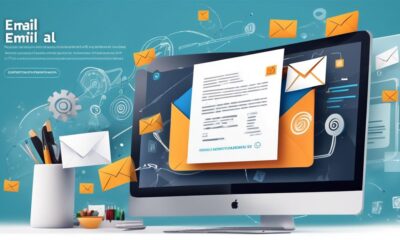
 Email Design Hub2 months ago
Email Design Hub2 months ago3 Essential Tools for Email Marketing Design Success
-

 Email Marketing1 month ago
Email Marketing1 month agoWhat Is Email Marketing Advantages and Disadvantages
-

 Email Marketing1 month ago
Email Marketing1 month agoWhy Email Marketing Is Effective
-

 Email Template1 month ago
Email Template1 month agoCrafting the Perfect Book Club Invitation Email Template
-
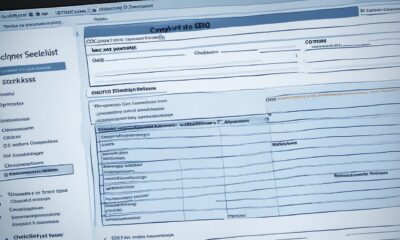
 Search Engine Optimization4 weeks ago
Search Engine Optimization4 weeks agoSEO Checklist: Enhance Your Site’s Performance
-

 Email Marketing1 month ago
Email Marketing1 month agoDoes Email Marketing Work in 2024




